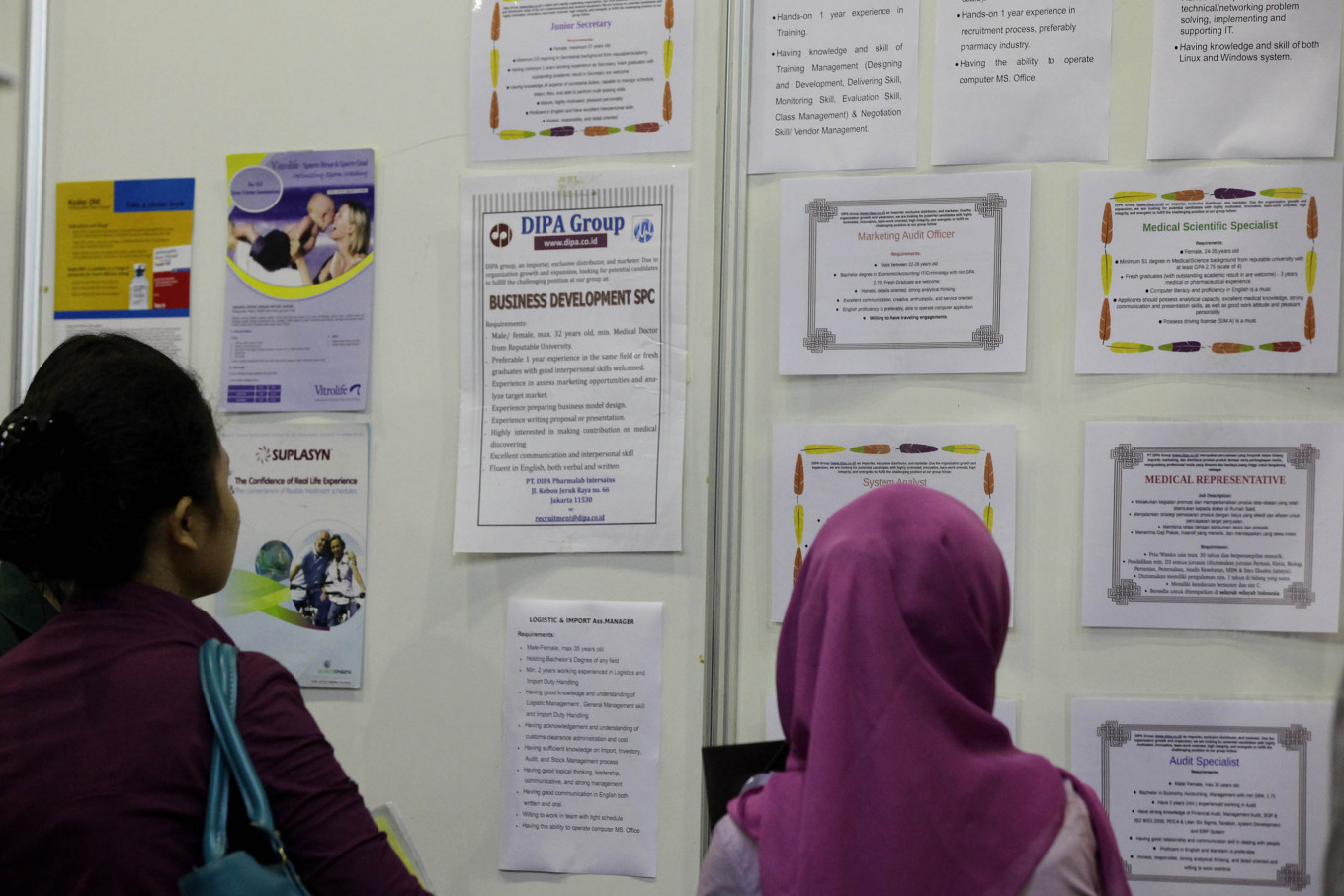Popular Reads
Top Results
Can't find what you're looking for?
View all search resultsPopular Reads
Top Results
Can't find what you're looking for?
View all search resultsTelefast Indonesia to expand services, targets jobseekers
Telefast first started its business as a distributor of telecommunication products, such as phone credit, before expanding its business to job matchmaking using its distribution network.
Change text size
Gift Premium Articles
to Anyone
H
uman resources management solution firm PT Telefast Indonesia plans to expand its services amid rising unemployment caused by the COVID-19 pandemic, a company executive has said.
The publicly listed company said it was expanding its client base through its Telefast Agent Program while concurrently expanding its talent base through a Sobat KerjaKU program where jobseekers can drop off their resume with the company’s outlet partners and be connected to job opportunities.
“We are hoping to continue to expand because it will help people in finding jobs,” the company’s president director, Jody Hedrian, said during a livestreamed event on Tuesday.
He added that under the Sobat KerjaKU program the company had managed to register 8,800 retail partners to help process applicants’ resumes, which are digitized into a barcode system.
Telefast first started its business as a distributor of telecommunication products, such as phone credit, before expanding its business to job matchmaking using its distribution network.
The ongoing pandemic has depressed job markets as businesses face a liquidity crunch amid a slowdown in the economy, which has resulted in many employees being furloughed and laid off while companies put hiring new talent on hold.
Start-ups, in this case, have conducted similar cost-cutting schemes with big names like Gojek and Grab already downsizing their employees, while other start-ups like Airy have had to close permanently after carrying out mass layoffs.
“What differentiates us from other start-ups is that we are not doing a cash burn [strategy],” Jody said, referring to a strategy common to start-ups where they spend capital and book negative cash flow to rapidly expand before reaching a point of profitability.
According to the company’s quarterly financial report, its total assets stood at Rp 230.34 billion (US$15.77 million) as of March 31, a slight decrease from Rp 230.67 billion recorded as of Dec. 31, indicating that the company had not spent much on capital expenditure.
In a written statement published on the Indonesia Stock Exchange (IDX) site on July 9, the company estimated that its revenue could decrease between 25 and 50 percent, while its net profits could be down by less than 25 percent as of June 30 in comparison with the same period last year because of the pandemic.
“The company’s clients engaged in the hotel and restaurant industry have been impacted, which has reduced operational activities, and hence, has had an impact on the workers we channel,” the company wrote.
As of March 31, the company’s revenue was up by 8.84 percent year-on-year to Rp 146.86 billion from Rp 134.92 billion. Its net profits, however, were down by 58 percent to Rp 2.4 billion from Rp 5.68 billion during the same period.
The company’s shares, trading on the IDX under the code TFAS, plunged 3.59 percent to Rp 161 apiece on Wednesday from the previous session. Throughout the year, its share price has fallen by more than 17 percent while the benchmark Jakarta Composite Index (JCI) has lost 18.88 percent of its value.










